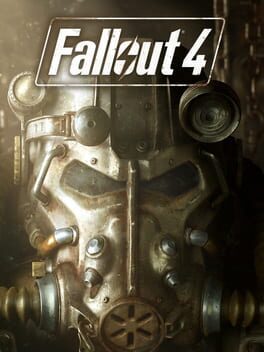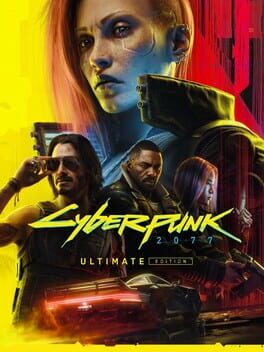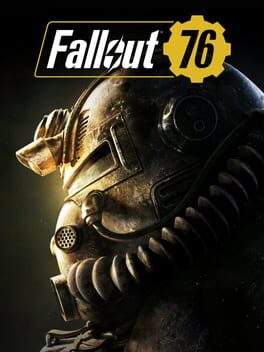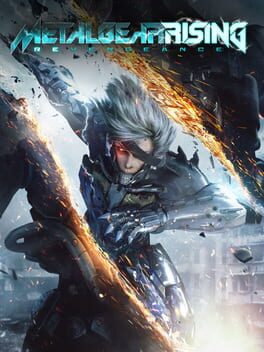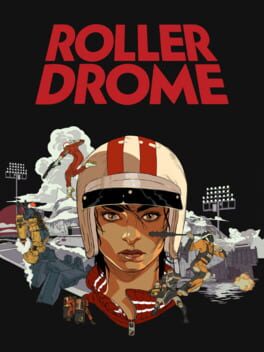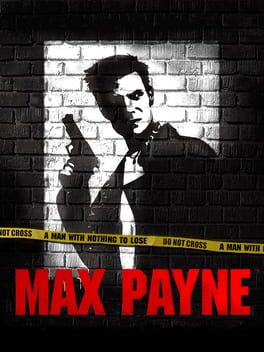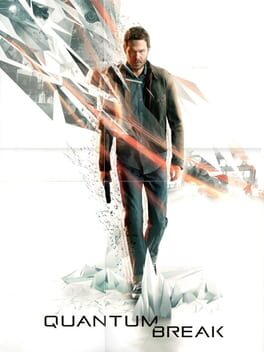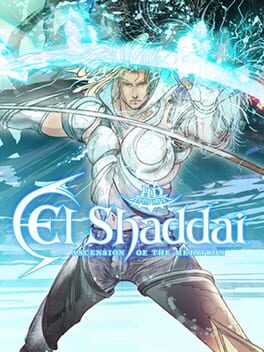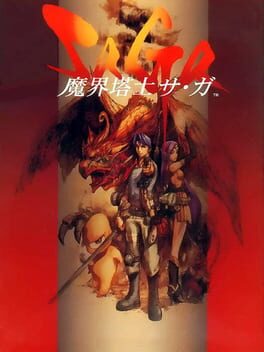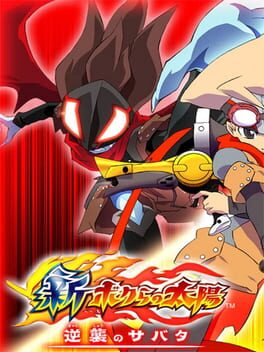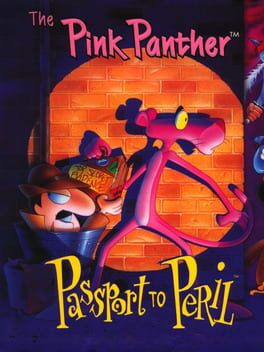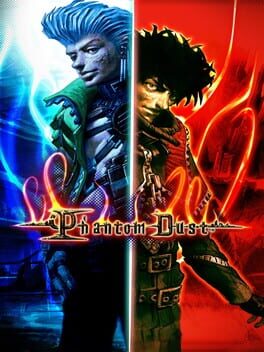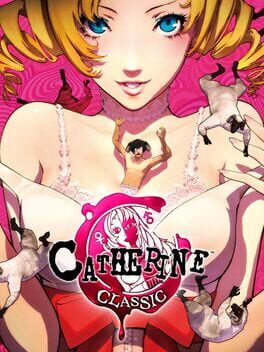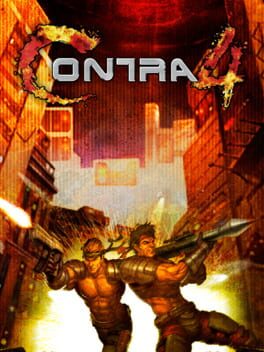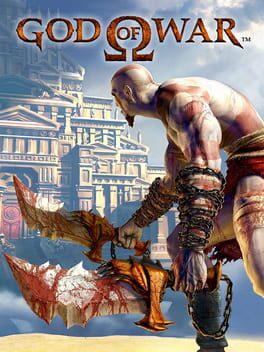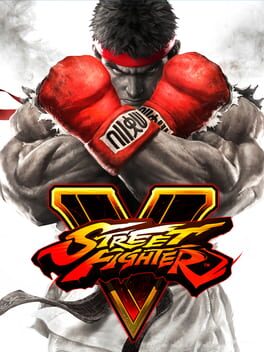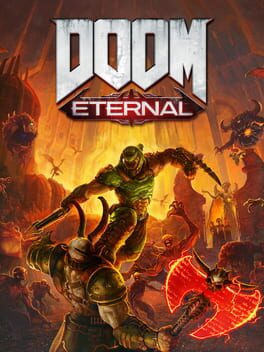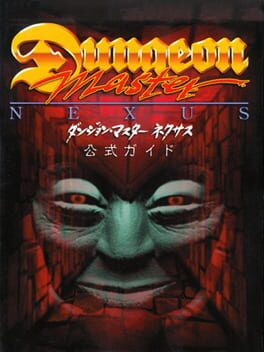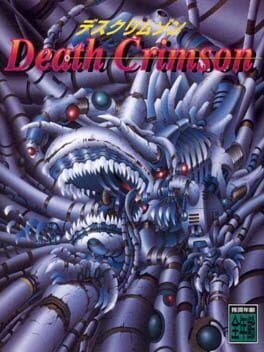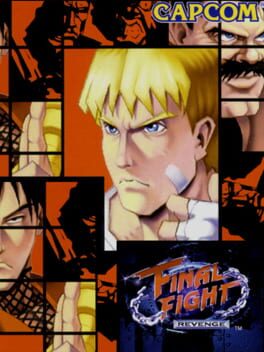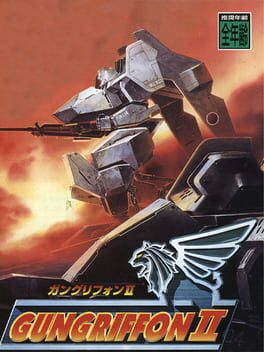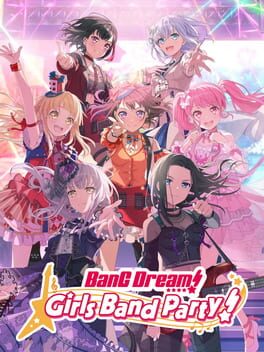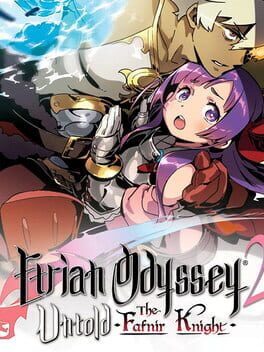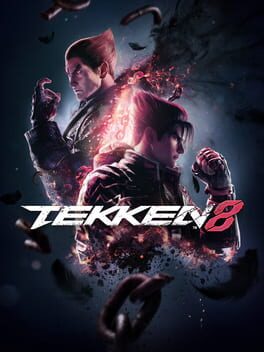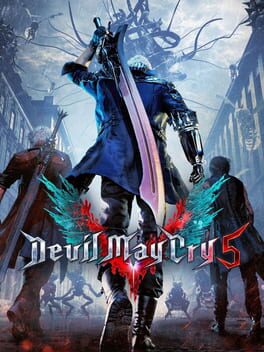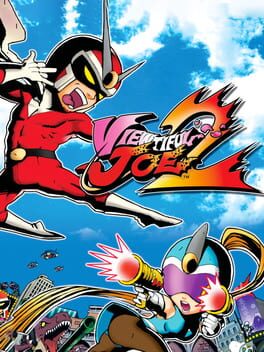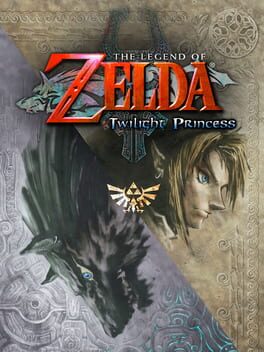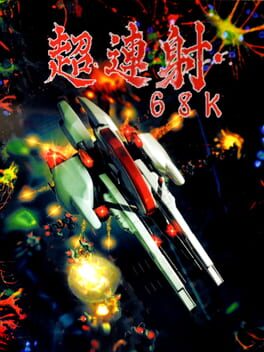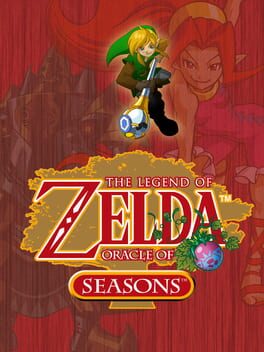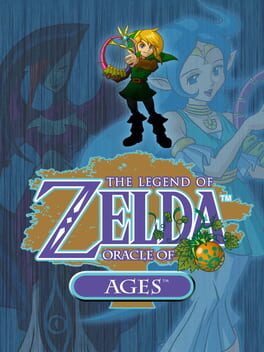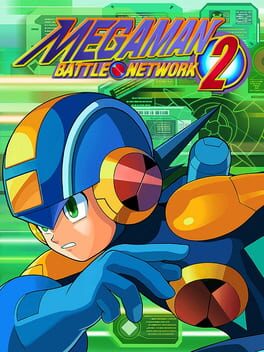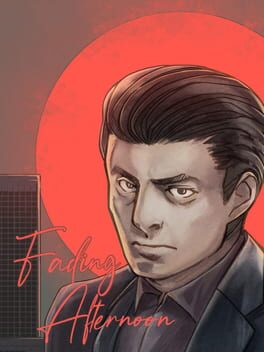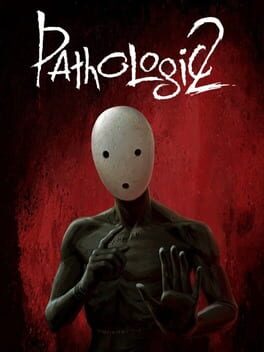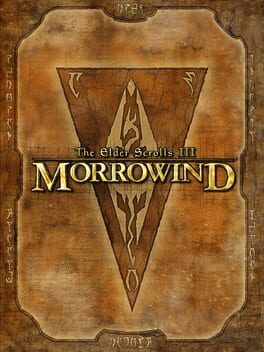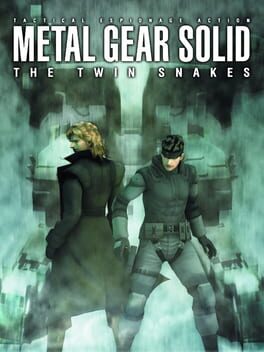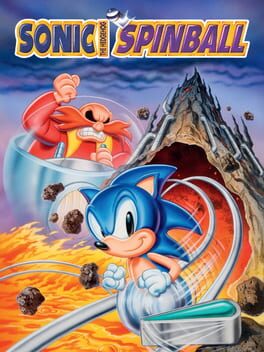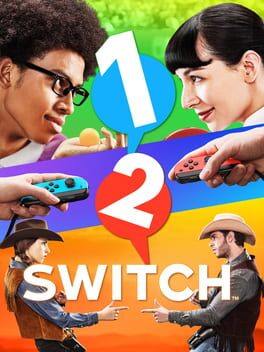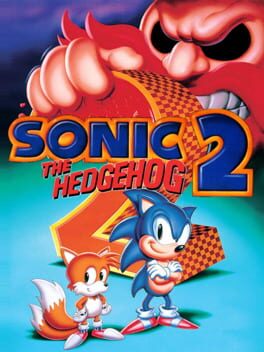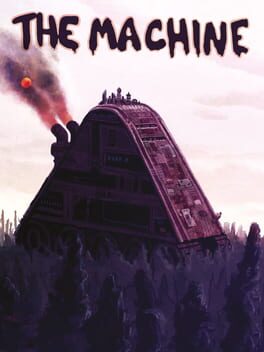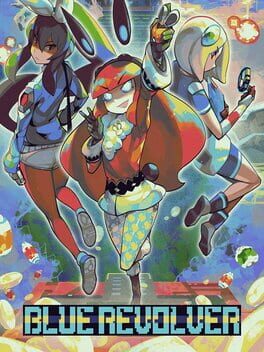alvarotolledo
701 reviews liked by alvarotolledo
Dragon's Dogma II
2024
I wasn't sure, after my first few hours of play, how much I'd like this. I had high hopes that it would capitalize on some of the unfulfilled potential of the first game, and my first impression was that it didn't quite. The first big monster encounter didn't really add anything to what the original was doing, and there's no trace of the cool rhythm-oriented attack sequencing that intrigued me so much.
But I kept at it, I switched from Fighter to Thief, and I came around. The exploration is very cool, capturing a sense of place and reward-for-exploration with the best of the open world games. And the more I played the big monster fights, the more I thought they were pretty compelling.
The rest of it is... mixed. I have a tremendous amount of affection and respect for the way it chooses to use friction in its palette: the limits on fast travel work fantastically, with my only complaint being that staying awake on an oxcart should be more feasible and not a totally endless parade of encounters that end up destroying the cart; the class system hits a good balance of rewarding multiclassing without making it free; the quests are mostly a pleasing level of kinda janky.
But boy, is this game huge. Even resisting the urge to explore comprehensively or track down every last side quest, I'm twenty-five hours in and feeling like I've barely scratched the surface. And while I'm not intrinsically opposed to a game of that size, I don't think the moment-to-moment combat or writing quite has the legs to hold up a game of that size. Not for me, not when I have so many other games I want to get around to.
But I kept at it, I switched from Fighter to Thief, and I came around. The exploration is very cool, capturing a sense of place and reward-for-exploration with the best of the open world games. And the more I played the big monster fights, the more I thought they were pretty compelling.
The rest of it is... mixed. I have a tremendous amount of affection and respect for the way it chooses to use friction in its palette: the limits on fast travel work fantastically, with my only complaint being that staying awake on an oxcart should be more feasible and not a totally endless parade of encounters that end up destroying the cart; the class system hits a good balance of rewarding multiclassing without making it free; the quests are mostly a pleasing level of kinda janky.
But boy, is this game huge. Even resisting the urge to explore comprehensively or track down every last side quest, I'm twenty-five hours in and feeling like I've barely scratched the surface. And while I'm not intrinsically opposed to a game of that size, I don't think the moment-to-moment combat or writing quite has the legs to hold up a game of that size. Not for me, not when I have so many other games I want to get around to.
Persona 3 Reload
2024
“O tempo não espera ninguém. Somos todos iguais em seu fluxo, cada vida rumo a um fim.”
Tenho sentimentos mistos com Persona 3: Reload. Ele não tem metade do charme, dinamismo, conteúdo e variedade de P5R. Comparação talvez injusta visto se tratar de um remake onde o original foi lançado há quase 20 anos, mas difícil não fazer quando compartilham uma proposta idêntica na mecânica de gameplay. Senti jogar a mesma coisa, só que uma versão inferior.
Os personagens são apresentados de forma bem mais carismática no título de 2019, cada um com seu próprio arco de apresentação para depois ser inserido no grupo, aqui tudo parece apressado. Me conectar com o S.E.E.S. não foi tão fácil como os Phantom Thieves.
Cotidiano Escolar e os Social Links são pouco interessantes no começo, a maioria dos personagens que interagimos até metade do jogo são secundários e não participam do enredo principal. Muitas vezes parece aquele episódio filler de um anime que você gosta, mas pula sem medo de ser feliz. O mapa tem uma fração do tamanho, obviamente leva bem menos tempo visitar e conhecer tudo disponível, o calendário não é denso.
O Tártaro também não fica isento, tem boa variedade de inimigos, mas não tem jeito, conteúdo procedural sempre fica repetitivo e enjoativo. A opção de analisar fraqueza dos inimigos piora tudo, achei muito OP. Maioria das minhas idas eu passava uns 12, 15 andares de uma só vez e estava bem pra continuar, mas retornava pro entediante cotidiano porque não aguentava mais. Sei que poderia aumentar a dificuldade, mas não sou nenhum veterano da franquia, este é meu segundo, não achei que seria necessário.
Acho que faltou algo semelhante aos Palácios do 5. Eles dão aquele frescor pra dinâmica do joguinho sempre se manter fluída, divertida e empolgante. São neles o maior desenvolvimento de enredo e dos personagens, tanto heróis quanto os vilões... dando contexto pro Cotidiano Escolar se manter interessante e principalmente os Social Links, que são na maioria dos protagonistas. Sem eles, tudo aqui parece meio repetitivo e desconexo, a história se desenvolve muito pouco durante uns 2/3 do game. Você só pega algumas informações jogadas aqui e ali, como “faltam 8 boss pra você derrotar”.
Felizmente ele dá um estalo que melhora consideravelmente depois disso. A história passa a ser melhor explorada, os personagens ganham mais destaque, seu tom mais sério vem à tona e tudo fica mais emocionante. Seu final é lindo e daqueles que pausa nosso estado de espírito por um momento... A gente sempre pensa na Morte como algo distante, mas vez ou outra somos lembrados de forma cruel (ou não) que ela sempre nos rodeia. A vida, ela é única, finita e nosso futuro incerto. Senso de propósito nos molda para acreditar que fazemos valer tal dádiva. Alguns mais perdidos que outros, mas todos destinados ao mesmo fim imutável e irrefreável. Eu só levo conselhos de quem entende mais para saber aproveitá-la, pois é curta e daqui 100 anos todo mundo hoje vivo terá dado espaço pra outra geração ter sua oportunidade.
O destino de P3R é excelente, mas toda a viagem em si não se nivela. Um bom jogo, mas uma fraca continuação do 5, superior em praticamente todos os aspectos. Não me surpreende, o parâmetro era bem alto... consumo pouquíssimo produto asiático (Death Note conta?), e mesmo assim Persona 5: Royal é o game mais carismático que já joguei. Um 10/10 único e redondinho.
Tenho sentimentos mistos com Persona 3: Reload. Ele não tem metade do charme, dinamismo, conteúdo e variedade de P5R. Comparação talvez injusta visto se tratar de um remake onde o original foi lançado há quase 20 anos, mas difícil não fazer quando compartilham uma proposta idêntica na mecânica de gameplay. Senti jogar a mesma coisa, só que uma versão inferior.
Os personagens são apresentados de forma bem mais carismática no título de 2019, cada um com seu próprio arco de apresentação para depois ser inserido no grupo, aqui tudo parece apressado. Me conectar com o S.E.E.S. não foi tão fácil como os Phantom Thieves.
Cotidiano Escolar e os Social Links são pouco interessantes no começo, a maioria dos personagens que interagimos até metade do jogo são secundários e não participam do enredo principal. Muitas vezes parece aquele episódio filler de um anime que você gosta, mas pula sem medo de ser feliz. O mapa tem uma fração do tamanho, obviamente leva bem menos tempo visitar e conhecer tudo disponível, o calendário não é denso.
O Tártaro também não fica isento, tem boa variedade de inimigos, mas não tem jeito, conteúdo procedural sempre fica repetitivo e enjoativo. A opção de analisar fraqueza dos inimigos piora tudo, achei muito OP. Maioria das minhas idas eu passava uns 12, 15 andares de uma só vez e estava bem pra continuar, mas retornava pro entediante cotidiano porque não aguentava mais. Sei que poderia aumentar a dificuldade, mas não sou nenhum veterano da franquia, este é meu segundo, não achei que seria necessário.
Acho que faltou algo semelhante aos Palácios do 5. Eles dão aquele frescor pra dinâmica do joguinho sempre se manter fluída, divertida e empolgante. São neles o maior desenvolvimento de enredo e dos personagens, tanto heróis quanto os vilões... dando contexto pro Cotidiano Escolar se manter interessante e principalmente os Social Links, que são na maioria dos protagonistas. Sem eles, tudo aqui parece meio repetitivo e desconexo, a história se desenvolve muito pouco durante uns 2/3 do game. Você só pega algumas informações jogadas aqui e ali, como “faltam 8 boss pra você derrotar”.
Felizmente ele dá um estalo que melhora consideravelmente depois disso. A história passa a ser melhor explorada, os personagens ganham mais destaque, seu tom mais sério vem à tona e tudo fica mais emocionante. Seu final é lindo e daqueles que pausa nosso estado de espírito por um momento... A gente sempre pensa na Morte como algo distante, mas vez ou outra somos lembrados de forma cruel (ou não) que ela sempre nos rodeia. A vida, ela é única, finita e nosso futuro incerto. Senso de propósito nos molda para acreditar que fazemos valer tal dádiva. Alguns mais perdidos que outros, mas todos destinados ao mesmo fim imutável e irrefreável. Eu só levo conselhos de quem entende mais para saber aproveitá-la, pois é curta e daqui 100 anos todo mundo hoje vivo terá dado espaço pra outra geração ter sua oportunidade.
O destino de P3R é excelente, mas toda a viagem em si não se nivela. Um bom jogo, mas uma fraca continuação do 5, superior em praticamente todos os aspectos. Não me surpreende, o parâmetro era bem alto... consumo pouquíssimo produto asiático (Death Note conta?), e mesmo assim Persona 5: Royal é o game mais carismático que já joguei. Um 10/10 único e redondinho.
Fallout 4
2015
Fallout 4
2015
- waited patiently for the "next-gen" update.
- steam deck verified. nice
- boot it up on my deck
- no graphics settings. they got verification by removing the only thing that requires mouse and keyboard and then didn't give you an in-game way to change them (they did this for skyrim too)
- runs worse
fuck off bethesda jesus christ
- steam deck verified. nice
- boot it up on my deck
- no graphics settings. they got verification by removing the only thing that requires mouse and keyboard and then didn't give you an in-game way to change them (they did this for skyrim too)
- runs worse
fuck off bethesda jesus christ
"Loving V"
Mascara drenched-tears and gunfire. In the end I just stuck the iron in my mouth, pulled the trigger.
As V and Johnny sat on the roof of Misty's Esoterica, their voices drowned-out in the noises of Night City, Cyberpunk pulls me away at last, removes us from subjectivity by panning the camera out of this digitally-stricken body and towards a wider angle of two trajectories mercifully coming to a stop - deciding they wouldn’t play the game anymore. “Cleanest, least bloody option” she said. My first-person absorption within the computer-game was hence wholly consumed, putting V in front of me in a way that felt true to the experience of playing 2077’s broken, shimmering jank, the achievement of ending one’s life making sense of both our acts of roleplaying; mine as a holistic, experiential avenue and hers as dramatic diegesis given shape through the only language video-games seem to understand well enough, that is, the accumulation - and ultimate bubbling - of violence.
Shit felt terrible, no questions about it, something of the unfinished and unachievable kind - the right kind of wrong for once, first-person shooting in the directness of your face, forever. Suicide is exhaustion given infinite form and no language to remedy it’s omnipresence - that's no easy sentiment to tease out of me and it sure as hell ain’t a virtual one but Cyberpunk did succeed and I do not mean it as just another rejection of failed ludonarrative ventures, though this particular ending does carry with it an air of disdain for your decision to not act out the blaze of glory-seeking bravado that’s meant to close out the story. But I was exhausted. The wild circle of Cyberpunk 2077 goes both ways; cornucopia as trash and trash as cornucopia. All the narrative swings and systemic inconsistencies that fed from the ugliness of the work's dangling bits and in turn shone back some of their own light to form genuinely unique video-game sequences that deserve to be examined and contextualized on their own, beyond the meme, formed a world alright. All of it was too much. I could not play a minute longer, had - many times - threatened to pull the plug on 2020's most wildly surreal corporate art experiment and so finally I did. Hit the proverbial Blackwall in a sense. The artificial prose and passes ruling on this empire of code could not - and then would not - accommodate my presence within their simulation. Doesn't matter how towering or complex, a simple data block which we fuel with credence for the time it takes to wrestle with its fictitious circuitry remains just that in spite of itself. V and I were simply tired of sharing this body - a veritable second Silverhand I had become -, me attempting to imbue her with an essence that was never really there in the first place whilst she roared and raged to stay alive for another day or another hour, to exist inside the megalopolis of the dark future whatever the cost.
In the middle of this mounting heap of conflicted desires lied an encounter producing atomic material. Proper character-moments and personal voids, dejected ones. Times like “Automatic Love” and times like Takemura. Enough of those will fry your brains out. Make sure I can never come back nor forget Night City. From my continuous first-person to theirs - a third vision, on top of that apartment complex, saying things but really saying nothing at all because nothing is left to be said. And they're just there. And then they're not. And in this split-second where the linearity of your decisions establishes itself - this shift where the verb “interact” becomes “witness” - you realize, or at least I did, that you felt (no, feel) a certain type of way about her. The choice - if ever there was one - had been made from the start; all I did was press the button in an honest mistake. Enough play, more flatline.
“And in the bloodlit dark behind his eyes, silver phosphenes boiling in from the edge of space,
hypnagogic images jerking past like film compiled from random frames.
Symbols, figures, faces, a blurred, fragmented mandala of visual information.
Please, he prayed, now–”
Now the whole bathroom’s messed up and there’s vomit in the sink. Daddy is naked. Daddy’s blown a billion dollars down the drain in search of ray-traced fields yonder only leaving third-degree burns in his wake. This is not a video-game-centric problem but Video–games are the medium. Two years later, Phantom Liberty brings me back. V is brought forward from the dead, still fucking unstable, still drawing me in and I’m thinking to myself “Now is the moment”. Brand new chain, brand new RTX. I’m back not out of Edgerunners-fever but perhaps plain naïveté, thinking that I knew a way out. I knew, at least, of the Tower, this new epilogue that would let my V live out the rest of her days in Night City free of Silverhand’s cancerous engram, a character somewhat damaged and reformed - so I cultivated a plan. If my first journey was to be defined by the game’s egregore, then my second outing would act as its negative. Let blights and blessings wash over V in equal measures, see where the world of Cyberpunk would take me this time. A descent into roleplaying. Towards-
“A gray disk, the color of Chiba sky.
Now–”
A nowness. The septic tank of frame generation and path-tracing galore. Lights softly lashing out. A hundred paces into the grid. Immersion has always been at the heart of the 2077 project. A nowness, by which I mean the immediacy with which the game attempts to hold your attention and force you to engage with its world through the eyes of a digital construct. No computer software captures the push-and-pull of first-person like Cyberpunk which makes the failure deeper, almost more cutting. Soft games versus hard games - with 2077 in-between, attempting a hard act without the substantive arguments, building itself around a prefabricated fantasia of the subjective camera as this sort of all-encompassing dramatic cliché of immersion where the virtual gestures performed by V’s body are set and ordained through expensive cinematography instead of gameplay - draping itself in the robes of Deus Ex even as the meat falls off the bones to reveal an intense, almost angry focus on being a shooter first and foremost. It's that kind of teleguided rhythm which dictates the juiciest chunks of Cyberpunk's action-roleplay; a game that simply feels best when the gatling sings the cries of a thousand dead punk babies. And to these we add our faerie touch - a dialogue system skimming through flavour options as heavy stakes and lush set-pieces orient our gaze throughout CDPR’s theatrical exposé.
A nowness. When V shouts at the top of her lungs, when she’s desperately crawling her way out of a sky-wide hole. A nowness is when she touches another human being’s face, when she is touched and being looked at herself - which is why scenes like our confession at Clouds or Aurore’s appearance in «You Know My Name» hit such a fever. In their paranoid arousal lies a sincere expression of the hardships that come with human interaction in our day and age of disembodiment; searching for closure in a sex club, going full-on cyberpsycho, all of us, together alone. There and now. V is not, in other words, a character who expresses herself a lot through violence at the hands of the controller. In order to stab/stealth we must suppress this desire to get closer to the world she inhabits - replace it with the utility of conflict-solving, which is not to say that this violence serves no purpose. It is the sensory-deprivation chamber, the numbness you feel after sleeping the day-off; this dream that despondency fed every time you took the elevator to the 8th floor of H10 and were met with an aesthetical fart on the telly or every time the core was laid bare, exposed by bugs and cogs - because, yeah, everything feels slow, sluggish in Night City, as if the interplay between V and her numerous points of acquisition never quite met their intended target and instead underlined the facade of the whole structure in a way that feels relevant to the text, a text, not the one Cyberpunk 2077 is writing but the one written about and around it, a game that’s more than a game, filled to the brim with dead things that pretend to be alive. Anything to feel something in this place removed - so why not a shotgun blast?
A nowness without which the text of Cyberpunk would feel half-superfluous in truth. Suicide doesn’t happen without these empty pockets of play. My V needed this violence, this dishonesty, for her death to make sense of it all. But my affection only happens in the game’s jello, in this space where play's internal logic is superseded by the outbursts of tactile production riches. Sequences like the Heist or the Chimera boss-fight - one of Phantom Liberty’s many highlights -, our countless segues into the city's underbelly as societal observations games were never really well equipped to answer in the first place but which 2077 tackles with surprising softness at times, punctuations in the routine of car rides and murder contracts; the lead in a detective story that’s always about touch - whether pyrotechnical or intimate - at the end of the tunnel. A nowness - an entrapment. It’s all the same to V.
“Disk beginning to rotate, faster, becoming a sphere of palergray.
Expanding-- And flowed, flowered for him, fluid neon origami trick,
the unfolding of his distance less home, his country, transparent 3D chessboard extending to infinity.”
Sometimes I get so tense while playing games that I forget to breathe. My fingers tense up, just enough that the tendons jerk back a little but not enough that it actually hurts in the long run, intermittently gritted teeth ease their pressure every dozens of second or so to let me swallow a little and I lean forward from the back of my chair like anyone who’s ever lost the first two rounds in a LAN. What I am describing here is not the buildup of tension that hard games tend to inflict upon the player - there’s joy (and an exchange) happening in that trade of blows, I think. No, what this situation feels like to me is a voicelessness in the matter of the video-game. The game having and very much using its voice to suppress mine as an action that does not scream of authorial intent so much as it aims to render the player mute. This is what these worlds, in their openness, do to us. They bloat and gurgle most - if any - possibility for expression to emerge within their likeness - to impart a certain elasticity of being to the fiction and its characters. For play to go in more than one direction at a time and meet these undercurrents, make them integral parts of the text. Night City is different in that it’s aesthetically crude and conscious of what the city is to us (what drives the player to seek out its spectacle) yet, as the strongest - sometimes only - voice in play by virtue of its open-ended nature, it cannot let go of two conceptions essential to its successes ; an idea of the player as a set of neurotic impulses (which we are) drawn in parallel to its own view of itself as a space that both seeks and belies simulation. Peaceful cohabitation between Cyberpunk’s slew of systems was never on the cards and so the most salient question anyone can ask of 2077 isn’t whether it answers every political point of aesthetics that’s been ascribed - rather pointlessly - to the genre but instead see a translation of play’s tropes into an actuation of its game-world through the following question: Is Night City A Walkable Paradise?
“Inner eye opening to the stepped scarlet pyramid of the Eastern Seaboard Fission Authority burning beyond the green cubes of Mitsubishi Bank of America,
and high and very far away he saw the spiral arms of military systems, forever beyond his reach.”
In one of my favourite early passages of Neuromancer, William Gibson describes a nowness. Through richly-textured streams of consciousness we get a glimpse of protagonist Case’s emotional ecstasy on the threshold between flesh and computer, a sort of strobe-lights reel akin to the religious experience of being visited by the Internet’s composite angel. This encounter with the world as perceived and rendered from our screens is the essence of Night City’s flash drive - that moment lived in the intersection, this longing that inhabits the mind and can only be met with an image of totality; every neon reflected in its corresponding surface, every aspect of reality densely explored by the weight of writing and asset-imprinted on the cornea itself. Baudrillard’s simulacrum realized. Night City is not a walkable paradise - it is a perceivable (video-game) one.
What I’m trying to get at is…we need an alternative. To get out of here. In this way 2077’s rendition of the "natural world" outside Night City is deeply moving to me; a barren, unstimulating expanse of polluted desert and dry grass that acts in contrast to everything else in Cyberpunk and makes itself vibrant whereas Wild Hunt's impressionistic canvases of aerial pine forests and ravaged country roads felt synthetic because, this time, there's no artifice. I drove there once in a haze. There was just too much light everywhere else. Blood spilled on halogen. Repetition, often empty conversations. An absent escape. So I just took Jackie’s ride and blasted past the Stateline, as fast as I could, because I wanted to remain in the game whilst simultaneously wanting out of it. Ditched my motorcycle and started walking, breathing a little in the shadow of wind turbines as the scenery unfolded before me. I think that’s due to this want - at least on my side - for the game world to work. Something’s leaking through the grapevine. We come back to open-worlds not because of their quality but because we believe they might one day attain the true colour of reflection and surpass their fragile status as simulated environments - hence the rise of A.I. and infinite terrain generation pushing a hollow artistic envelope. In this case a pedestrian motion invites a sort of contemplative boredom that is vital to traversal. Why else, for example, would CD Projekt RED insist on adding a fully functional metro system to Night City, years after the fact? A nowness. I value games where walking doesn’t feel redundant. I value this stride towards play outside of ravenous incentives supposed to inform the wider context of the story the game's trying to tell instead of distracting me, as something that smells like games but only binds us to physical limitations insofar as they evoke something within us. This is the heart of Cyberpunk 2077 - the thing it’s reaching for. A game trying to use the framework in order to bypass it. Unlimited budget in the service of capital’s immersive production of a nowness within which players could nest themselves. What V embodies then in my eyes is this effort to push past “the new and improved meaning vacuums, where the only thing that mattered, and the only thing that players could rely on and relate to, were their own individual experiences” created by the contemporary sandboxed open-world. Why would we wanna leave? And isn’t that wish for immersion worth examining in itself? Despite what it does to a human heart?
Night City is not strong enough to hold down the fort. But in instances like the one(s) I’ve just described it’s stumbling, perhaps half-knowingly, into player-engineered but space-emergent resonances, and the people at CDPR - for all their evident lack of swagger - know that too. This time V didn’t kill herself. She just stayed there in the heat of perpetual summer, jumping over rock geometries, listening to SAMURAI on the radio for a while, before riding back into the heart of the city one last time. I quit the game and got down to writing. There's so much more to life than this. But it’s also all there is. We're in it for the love of the game, for the slices of life - roleplaying for the briefest of moments, calling a dead friend's phone number, sharing a room with Judy for the night knowing full well the moment will pass, too. Pulling the trigger or, even, leaving Night City altogether. Whether V lives or dies and by which hands she chooses to do so matter equally because this fate is hers and hers alone, in that final pull-back of the curtains where we become mere observers of a story which - both by design and happenstance - never really belonged to us in the first place. It's impossible not to hold some regrets in departing from a perspective we willingly populated with our own thoughts and choices for so many hours yet becoming relevant to us at the exact moment agency stops being a factor. V walks - just not in the same city as us. Like this image of Reed at the end of Phantom Liberty drifting-off into the desert, towards the uncaring sun of empire. "Sand's fucking hot", V says. Burning at the proper temperature it will shrivel into new matter, becoming glass before scattering again like the ashen shards of a bygone mirror. We're always left to pick up the pieces, thinking that this time things will be different, and they never are, but we keep trying. A nowness is a phenomenon forever incomplete - affixed to the interactivity of the present, incapable of seeing beyond its own immersion. But it's also a possibility for change; this hope that, maybe one day, through the experience of others - with others - we could better understand ourselves. Walk alongside the rest of Night City. Touch the same soil as V.
A nowness–
"And somewhere he was laughing,
in a white-painted loft,
distant fingers caressing the deck,
tears of release streaking his face."
–Neuromancer, Chapter 3, William Gibson, 1984
Mascara drenched-tears and gunfire. In the end I just stuck the iron in my mouth, pulled the trigger.
As V and Johnny sat on the roof of Misty's Esoterica, their voices drowned-out in the noises of Night City, Cyberpunk pulls me away at last, removes us from subjectivity by panning the camera out of this digitally-stricken body and towards a wider angle of two trajectories mercifully coming to a stop - deciding they wouldn’t play the game anymore. “Cleanest, least bloody option” she said. My first-person absorption within the computer-game was hence wholly consumed, putting V in front of me in a way that felt true to the experience of playing 2077’s broken, shimmering jank, the achievement of ending one’s life making sense of both our acts of roleplaying; mine as a holistic, experiential avenue and hers as dramatic diegesis given shape through the only language video-games seem to understand well enough, that is, the accumulation - and ultimate bubbling - of violence.
Shit felt terrible, no questions about it, something of the unfinished and unachievable kind - the right kind of wrong for once, first-person shooting in the directness of your face, forever. Suicide is exhaustion given infinite form and no language to remedy it’s omnipresence - that's no easy sentiment to tease out of me and it sure as hell ain’t a virtual one but Cyberpunk did succeed and I do not mean it as just another rejection of failed ludonarrative ventures, though this particular ending does carry with it an air of disdain for your decision to not act out the blaze of glory-seeking bravado that’s meant to close out the story. But I was exhausted. The wild circle of Cyberpunk 2077 goes both ways; cornucopia as trash and trash as cornucopia. All the narrative swings and systemic inconsistencies that fed from the ugliness of the work's dangling bits and in turn shone back some of their own light to form genuinely unique video-game sequences that deserve to be examined and contextualized on their own, beyond the meme, formed a world alright. All of it was too much. I could not play a minute longer, had - many times - threatened to pull the plug on 2020's most wildly surreal corporate art experiment and so finally I did. Hit the proverbial Blackwall in a sense. The artificial prose and passes ruling on this empire of code could not - and then would not - accommodate my presence within their simulation. Doesn't matter how towering or complex, a simple data block which we fuel with credence for the time it takes to wrestle with its fictitious circuitry remains just that in spite of itself. V and I were simply tired of sharing this body - a veritable second Silverhand I had become -, me attempting to imbue her with an essence that was never really there in the first place whilst she roared and raged to stay alive for another day or another hour, to exist inside the megalopolis of the dark future whatever the cost.
In the middle of this mounting heap of conflicted desires lied an encounter producing atomic material. Proper character-moments and personal voids, dejected ones. Times like “Automatic Love” and times like Takemura. Enough of those will fry your brains out. Make sure I can never come back nor forget Night City. From my continuous first-person to theirs - a third vision, on top of that apartment complex, saying things but really saying nothing at all because nothing is left to be said. And they're just there. And then they're not. And in this split-second where the linearity of your decisions establishes itself - this shift where the verb “interact” becomes “witness” - you realize, or at least I did, that you felt (no, feel) a certain type of way about her. The choice - if ever there was one - had been made from the start; all I did was press the button in an honest mistake. Enough play, more flatline.
“And in the bloodlit dark behind his eyes, silver phosphenes boiling in from the edge of space,
hypnagogic images jerking past like film compiled from random frames.
Symbols, figures, faces, a blurred, fragmented mandala of visual information.
Please, he prayed, now–”
Now the whole bathroom’s messed up and there’s vomit in the sink. Daddy is naked. Daddy’s blown a billion dollars down the drain in search of ray-traced fields yonder only leaving third-degree burns in his wake. This is not a video-game-centric problem but Video–games are the medium. Two years later, Phantom Liberty brings me back. V is brought forward from the dead, still fucking unstable, still drawing me in and I’m thinking to myself “Now is the moment”. Brand new chain, brand new RTX. I’m back not out of Edgerunners-fever but perhaps plain naïveté, thinking that I knew a way out. I knew, at least, of the Tower, this new epilogue that would let my V live out the rest of her days in Night City free of Silverhand’s cancerous engram, a character somewhat damaged and reformed - so I cultivated a plan. If my first journey was to be defined by the game’s egregore, then my second outing would act as its negative. Let blights and blessings wash over V in equal measures, see where the world of Cyberpunk would take me this time. A descent into roleplaying. Towards-
“A gray disk, the color of Chiba sky.
Now–”
A nowness. The septic tank of frame generation and path-tracing galore. Lights softly lashing out. A hundred paces into the grid. Immersion has always been at the heart of the 2077 project. A nowness, by which I mean the immediacy with which the game attempts to hold your attention and force you to engage with its world through the eyes of a digital construct. No computer software captures the push-and-pull of first-person like Cyberpunk which makes the failure deeper, almost more cutting. Soft games versus hard games - with 2077 in-between, attempting a hard act without the substantive arguments, building itself around a prefabricated fantasia of the subjective camera as this sort of all-encompassing dramatic cliché of immersion where the virtual gestures performed by V’s body are set and ordained through expensive cinematography instead of gameplay - draping itself in the robes of Deus Ex even as the meat falls off the bones to reveal an intense, almost angry focus on being a shooter first and foremost. It's that kind of teleguided rhythm which dictates the juiciest chunks of Cyberpunk's action-roleplay; a game that simply feels best when the gatling sings the cries of a thousand dead punk babies. And to these we add our faerie touch - a dialogue system skimming through flavour options as heavy stakes and lush set-pieces orient our gaze throughout CDPR’s theatrical exposé.
A nowness. When V shouts at the top of her lungs, when she’s desperately crawling her way out of a sky-wide hole. A nowness is when she touches another human being’s face, when she is touched and being looked at herself - which is why scenes like our confession at Clouds or Aurore’s appearance in «You Know My Name» hit such a fever. In their paranoid arousal lies a sincere expression of the hardships that come with human interaction in our day and age of disembodiment; searching for closure in a sex club, going full-on cyberpsycho, all of us, together alone. There and now. V is not, in other words, a character who expresses herself a lot through violence at the hands of the controller. In order to stab/stealth we must suppress this desire to get closer to the world she inhabits - replace it with the utility of conflict-solving, which is not to say that this violence serves no purpose. It is the sensory-deprivation chamber, the numbness you feel after sleeping the day-off; this dream that despondency fed every time you took the elevator to the 8th floor of H10 and were met with an aesthetical fart on the telly or every time the core was laid bare, exposed by bugs and cogs - because, yeah, everything feels slow, sluggish in Night City, as if the interplay between V and her numerous points of acquisition never quite met their intended target and instead underlined the facade of the whole structure in a way that feels relevant to the text, a text, not the one Cyberpunk 2077 is writing but the one written about and around it, a game that’s more than a game, filled to the brim with dead things that pretend to be alive. Anything to feel something in this place removed - so why not a shotgun blast?
A nowness without which the text of Cyberpunk would feel half-superfluous in truth. Suicide doesn’t happen without these empty pockets of play. My V needed this violence, this dishonesty, for her death to make sense of it all. But my affection only happens in the game’s jello, in this space where play's internal logic is superseded by the outbursts of tactile production riches. Sequences like the Heist or the Chimera boss-fight - one of Phantom Liberty’s many highlights -, our countless segues into the city's underbelly as societal observations games were never really well equipped to answer in the first place but which 2077 tackles with surprising softness at times, punctuations in the routine of car rides and murder contracts; the lead in a detective story that’s always about touch - whether pyrotechnical or intimate - at the end of the tunnel. A nowness - an entrapment. It’s all the same to V.
“Disk beginning to rotate, faster, becoming a sphere of palergray.
Expanding-- And flowed, flowered for him, fluid neon origami trick,
the unfolding of his distance less home, his country, transparent 3D chessboard extending to infinity.”
Sometimes I get so tense while playing games that I forget to breathe. My fingers tense up, just enough that the tendons jerk back a little but not enough that it actually hurts in the long run, intermittently gritted teeth ease their pressure every dozens of second or so to let me swallow a little and I lean forward from the back of my chair like anyone who’s ever lost the first two rounds in a LAN. What I am describing here is not the buildup of tension that hard games tend to inflict upon the player - there’s joy (and an exchange) happening in that trade of blows, I think. No, what this situation feels like to me is a voicelessness in the matter of the video-game. The game having and very much using its voice to suppress mine as an action that does not scream of authorial intent so much as it aims to render the player mute. This is what these worlds, in their openness, do to us. They bloat and gurgle most - if any - possibility for expression to emerge within their likeness - to impart a certain elasticity of being to the fiction and its characters. For play to go in more than one direction at a time and meet these undercurrents, make them integral parts of the text. Night City is different in that it’s aesthetically crude and conscious of what the city is to us (what drives the player to seek out its spectacle) yet, as the strongest - sometimes only - voice in play by virtue of its open-ended nature, it cannot let go of two conceptions essential to its successes ; an idea of the player as a set of neurotic impulses (which we are) drawn in parallel to its own view of itself as a space that both seeks and belies simulation. Peaceful cohabitation between Cyberpunk’s slew of systems was never on the cards and so the most salient question anyone can ask of 2077 isn’t whether it answers every political point of aesthetics that’s been ascribed - rather pointlessly - to the genre but instead see a translation of play’s tropes into an actuation of its game-world through the following question: Is Night City A Walkable Paradise?
“Inner eye opening to the stepped scarlet pyramid of the Eastern Seaboard Fission Authority burning beyond the green cubes of Mitsubishi Bank of America,
and high and very far away he saw the spiral arms of military systems, forever beyond his reach.”
In one of my favourite early passages of Neuromancer, William Gibson describes a nowness. Through richly-textured streams of consciousness we get a glimpse of protagonist Case’s emotional ecstasy on the threshold between flesh and computer, a sort of strobe-lights reel akin to the religious experience of being visited by the Internet’s composite angel. This encounter with the world as perceived and rendered from our screens is the essence of Night City’s flash drive - that moment lived in the intersection, this longing that inhabits the mind and can only be met with an image of totality; every neon reflected in its corresponding surface, every aspect of reality densely explored by the weight of writing and asset-imprinted on the cornea itself. Baudrillard’s simulacrum realized. Night City is not a walkable paradise - it is a perceivable (video-game) one.
What I’m trying to get at is…we need an alternative. To get out of here. In this way 2077’s rendition of the "natural world" outside Night City is deeply moving to me; a barren, unstimulating expanse of polluted desert and dry grass that acts in contrast to everything else in Cyberpunk and makes itself vibrant whereas Wild Hunt's impressionistic canvases of aerial pine forests and ravaged country roads felt synthetic because, this time, there's no artifice. I drove there once in a haze. There was just too much light everywhere else. Blood spilled on halogen. Repetition, often empty conversations. An absent escape. So I just took Jackie’s ride and blasted past the Stateline, as fast as I could, because I wanted to remain in the game whilst simultaneously wanting out of it. Ditched my motorcycle and started walking, breathing a little in the shadow of wind turbines as the scenery unfolded before me. I think that’s due to this want - at least on my side - for the game world to work. Something’s leaking through the grapevine. We come back to open-worlds not because of their quality but because we believe they might one day attain the true colour of reflection and surpass their fragile status as simulated environments - hence the rise of A.I. and infinite terrain generation pushing a hollow artistic envelope. In this case a pedestrian motion invites a sort of contemplative boredom that is vital to traversal. Why else, for example, would CD Projekt RED insist on adding a fully functional metro system to Night City, years after the fact? A nowness. I value games where walking doesn’t feel redundant. I value this stride towards play outside of ravenous incentives supposed to inform the wider context of the story the game's trying to tell instead of distracting me, as something that smells like games but only binds us to physical limitations insofar as they evoke something within us. This is the heart of Cyberpunk 2077 - the thing it’s reaching for. A game trying to use the framework in order to bypass it. Unlimited budget in the service of capital’s immersive production of a nowness within which players could nest themselves. What V embodies then in my eyes is this effort to push past “the new and improved meaning vacuums, where the only thing that mattered, and the only thing that players could rely on and relate to, were their own individual experiences” created by the contemporary sandboxed open-world. Why would we wanna leave? And isn’t that wish for immersion worth examining in itself? Despite what it does to a human heart?
Night City is not strong enough to hold down the fort. But in instances like the one(s) I’ve just described it’s stumbling, perhaps half-knowingly, into player-engineered but space-emergent resonances, and the people at CDPR - for all their evident lack of swagger - know that too. This time V didn’t kill herself. She just stayed there in the heat of perpetual summer, jumping over rock geometries, listening to SAMURAI on the radio for a while, before riding back into the heart of the city one last time. I quit the game and got down to writing. There's so much more to life than this. But it’s also all there is. We're in it for the love of the game, for the slices of life - roleplaying for the briefest of moments, calling a dead friend's phone number, sharing a room with Judy for the night knowing full well the moment will pass, too. Pulling the trigger or, even, leaving Night City altogether. Whether V lives or dies and by which hands she chooses to do so matter equally because this fate is hers and hers alone, in that final pull-back of the curtains where we become mere observers of a story which - both by design and happenstance - never really belonged to us in the first place. It's impossible not to hold some regrets in departing from a perspective we willingly populated with our own thoughts and choices for so many hours yet becoming relevant to us at the exact moment agency stops being a factor. V walks - just not in the same city as us. Like this image of Reed at the end of Phantom Liberty drifting-off into the desert, towards the uncaring sun of empire. "Sand's fucking hot", V says. Burning at the proper temperature it will shrivel into new matter, becoming glass before scattering again like the ashen shards of a bygone mirror. We're always left to pick up the pieces, thinking that this time things will be different, and they never are, but we keep trying. A nowness is a phenomenon forever incomplete - affixed to the interactivity of the present, incapable of seeing beyond its own immersion. But it's also a possibility for change; this hope that, maybe one day, through the experience of others - with others - we could better understand ourselves. Walk alongside the rest of Night City. Touch the same soil as V.
A nowness–
"And somewhere he was laughing,
in a white-painted loft,
distant fingers caressing the deck,
tears of release streaking his face."
–Neuromancer, Chapter 3, William Gibson, 1984
Fallout 76
2018
joguei quando esteve de graça na steam. criei minha personagem e antes de fazer qualquer outra coisa tive q reiniciar o jogo pra reduzir a resolução, pois esse mesmo computador que rodou Fallout 4 no high em 1080p não é bom o bastante pra esse jogo, aparentemente. quando abri ele de novo surgi na frente do vault e as palavras "Quest Completed!" apareceram na minha frente. eu pulei o tutorial inteiro e a premissa da história por completo acidente. ok então. tava sozinha. andei um pouco, fiz algumas missões tentando entender a história por contexto e pistas, me senti completamente miserável e exausta e fechei o jogo. "talvez eu seja só uma hater de Fallout moderno. eu não gostei muito do programa também, pelo que eu vi."
por eu ter comentado no twitter sobre esse jogo, uma amiga começou a conversar comigo. a gente marcou de jogar Fallout 76 juntas. e quer saber? eu peguei o apelo. me lembro da maravilhosa resenha do Noah Caldwell Gervais de toda a série Fallout, onde ele descreve 76 como "conteúdo de segunda tela", algo feito para a era moderna onde as nossas atenções estão constantemente divididas entre redes sociais e outras atividades. isso faz muito sentido pra mim: foi só quando eu estava acompanhando alguém, conversando sobre várias coisas que as atividades desse jogo não me deixaram com vontade de tirar uma soneca de 1 hora. por mais que isso pareça (e até seja) uma crítica disfarçada de elogio, umas duas semanas atrás eu joguei The Elder Scrolls Online com a minha namorada e mesmo com a presença uma da outra, ficamos incrivelmente entediadas.
Fallout 76 é um bom lugar pra se habitar quando se tem alguém ao seu lado, ao ponto de que ser melhor que o Fallout 4 base. vale a pena pelo preço que está considerando que ele ainda tem um monte de microtransação? claro que não. mas podia ser pior (The Elder Scrolls Online). me confirmou que eu não sou tão hater de Fallout moderno quanto eu pensei, afinal eu meio que gosto (um pouco) do jogo que os fãs modernos odeiam! na verdade eu não gosto dos NPCs interativos que foram adicionados depois que esses mesmos fãs reclamaram da falta deles. ah tanto faz. considerando que eu não gastei nada foi até divertido
por eu ter comentado no twitter sobre esse jogo, uma amiga começou a conversar comigo. a gente marcou de jogar Fallout 76 juntas. e quer saber? eu peguei o apelo. me lembro da maravilhosa resenha do Noah Caldwell Gervais de toda a série Fallout, onde ele descreve 76 como "conteúdo de segunda tela", algo feito para a era moderna onde as nossas atenções estão constantemente divididas entre redes sociais e outras atividades. isso faz muito sentido pra mim: foi só quando eu estava acompanhando alguém, conversando sobre várias coisas que as atividades desse jogo não me deixaram com vontade de tirar uma soneca de 1 hora. por mais que isso pareça (e até seja) uma crítica disfarçada de elogio, umas duas semanas atrás eu joguei The Elder Scrolls Online com a minha namorada e mesmo com a presença uma da outra, ficamos incrivelmente entediadas.
Fallout 76 é um bom lugar pra se habitar quando se tem alguém ao seu lado, ao ponto de que ser melhor que o Fallout 4 base. vale a pena pelo preço que está considerando que ele ainda tem um monte de microtransação? claro que não. mas podia ser pior (The Elder Scrolls Online). me confirmou que eu não sou tão hater de Fallout moderno quanto eu pensei, afinal eu meio que gosto (um pouco) do jogo que os fãs modernos odeiam! na verdade eu não gosto dos NPCs interativos que foram adicionados depois que esses mesmos fãs reclamaram da falta deles. ah tanto faz. considerando que eu não gastei nada foi até divertido
Metal Gear Solid
1998
Meu primeiro jogo do Kojima, e tudo que falaram é verdade, o homem é bom. O jogo tem uma história muito boa que realmente me cativou, cheia de reviravoltas e parece até um pouco a estrutura de um filme.
É um jogo extremamente interativo, quebra a quarta parede toda hora, o que é muito legal e extremamente avançado para a época. Lembro de escutar gente falando sobre o Psycho Mantis lendo seu save desde os meus 7 anos de idade.
A IA me impressionou. Eles são muito espertos para a época e até para hoje. Se você se encurrala em algum lugar que não tem saída, eles não vão atrás de você; eles jogam uma granada e esperam você sair. Isso é mais inteligente que muito jogo stealth que já joguei (Hitman e AC).
O level design é muito funcional, com fases lindas e cada parte muito diferente uma da outra. A câmera em primeira pessoa foi uma sacada muito boa afim de evitar problemas com a câmera e funciona perfeitamente bem.
O Kojima, em entrevista, disse: "I've got backstories for these characters that cover their whole lives, from the moment they were born to their current situation, but probably only 1/3 of that will make it into the game." É notável o quão gênio esse cara é. Embora tenha alguns furos bem óbvios de roteiro, a história é muito bem amarrada. Todos os personagens têm uma história que não é apenas jogada na sua cara; ela é contada de maneira natural ao decorrer da campanha.
Em geral, é um jogão, envelheceu como vinho. Tem alguns problemas de jogabilidade, mas é um jogo de 1998, então temos que dar um desconto.
"Humans can choose the type of life they want to live."
É um jogo extremamente interativo, quebra a quarta parede toda hora, o que é muito legal e extremamente avançado para a época. Lembro de escutar gente falando sobre o Psycho Mantis lendo seu save desde os meus 7 anos de idade.
A IA me impressionou. Eles são muito espertos para a época e até para hoje. Se você se encurrala em algum lugar que não tem saída, eles não vão atrás de você; eles jogam uma granada e esperam você sair. Isso é mais inteligente que muito jogo stealth que já joguei (Hitman e AC).
O level design é muito funcional, com fases lindas e cada parte muito diferente uma da outra. A câmera em primeira pessoa foi uma sacada muito boa afim de evitar problemas com a câmera e funciona perfeitamente bem.
O Kojima, em entrevista, disse: "I've got backstories for these characters that cover their whole lives, from the moment they were born to their current situation, but probably only 1/3 of that will make it into the game." É notável o quão gênio esse cara é. Embora tenha alguns furos bem óbvios de roteiro, a história é muito bem amarrada. Todos os personagens têm uma história que não é apenas jogada na sua cara; ela é contada de maneira natural ao decorrer da campanha.
Em geral, é um jogão, envelheceu como vinho. Tem alguns problemas de jogabilidade, mas é um jogo de 1998, então temos que dar um desconto.
"Humans can choose the type of life they want to live."
Control
2019
Passagens multimídia encobertas por uma maravilhosa nevóa difusa entre tosco e noir; brutalismo usado como fonte de horror e adoração; tour de force de direção artística alimentado por sombras afiadas e iluminação impecável; um pacotinho de controles e poderes que flui de forma magnífica entre um e outro.
Por quê, então: mais um shooter de terceira pessoa amaldiçoado com crafting, elementos roguelite de conteúdo infinito, sistemas de “RPG” vestigiais que só servem pra alimentar os cabras mais famintos por dopamina que tem por aí. Nada diz “explorar um inferno brutalista não-euclidiano que é fisicamente e emocionalmente labírintico” como equipar seu personal mod lvl 4 +13% fart rate. O próprio ato cansado de apontar e atirar é ressignificado em sarcástica lógica circular: o supremo Objeto de Poder é uma pistola que… atira nas coisas. Quando a maioria das suas opções de interagir com horrores além de sua compreensão são sentar chumbo neles ou dar um dash até eles, tem alguma coisa errada.
Uma pancada estética muitíssimo memorável, carregando por aí um corpo do gênero mais cansado dos últimos 15 anos. Pô, eu jogo feliz qualquer bobagem que for bonita desse jeito - o choro é pelo que podia ser.
Por quê, então: mais um shooter de terceira pessoa amaldiçoado com crafting, elementos roguelite de conteúdo infinito, sistemas de “RPG” vestigiais que só servem pra alimentar os cabras mais famintos por dopamina que tem por aí. Nada diz “explorar um inferno brutalista não-euclidiano que é fisicamente e emocionalmente labírintico” como equipar seu personal mod lvl 4 +13% fart rate. O próprio ato cansado de apontar e atirar é ressignificado em sarcástica lógica circular: o supremo Objeto de Poder é uma pistola que… atira nas coisas. Quando a maioria das suas opções de interagir com horrores além de sua compreensão são sentar chumbo neles ou dar um dash até eles, tem alguma coisa errada.
Uma pancada estética muitíssimo memorável, carregando por aí um corpo do gênero mais cansado dos últimos 15 anos. Pô, eu jogo feliz qualquer bobagem que for bonita desse jeito - o choro é pelo que podia ser.
trilha sonora é um absurdo, o sistema de partir ao meio as coisas é muito legal e funciona bem.
a história é bem pastelona e edgy pra caralho, não me cativou muito, tanto ela quanto a critica não me pegaram muito.
As boss fights são MUITO BOAS, mas o caminho até chegar nelas com os inimigos padrões é muito enjoativo depois de tu repetir a mesma coisa mil vezes, e eles nem são muito complicados, o jogo te deixa recuperar 100% da vida em cada inimigo então tanto faz.
Hideo Kojima não parece que ficou muito feliz com o resultado final do jogo, em entrevistas ele mesmo fala, ''クソ野郎'' algo como ''eu não fiz a história, os designs, tudo foi feito por um time completamente novo, a gente não conseguia sair do lugar então decidimo pegar uma equipe nova pra fazer algo que eu completamente aleatório só pra testar algo que não seja stealth'' inclusive o jogo foi idealizado em 2008 curiosamente o ano de lançamento de devil may cry 4.
menção honrosa pro melhor brasileiro dos games
Jetstream Sam
a história é bem pastelona e edgy pra caralho, não me cativou muito, tanto ela quanto a critica não me pegaram muito.
As boss fights são MUITO BOAS, mas o caminho até chegar nelas com os inimigos padrões é muito enjoativo depois de tu repetir a mesma coisa mil vezes, e eles nem são muito complicados, o jogo te deixa recuperar 100% da vida em cada inimigo então tanto faz.
Hideo Kojima não parece que ficou muito feliz com o resultado final do jogo, em entrevistas ele mesmo fala, ''クソ野郎'' algo como ''eu não fiz a história, os designs, tudo foi feito por um time completamente novo, a gente não conseguia sair do lugar então decidimo pegar uma equipe nova pra fazer algo que eu completamente aleatório só pra testar algo que não seja stealth'' inclusive o jogo foi idealizado em 2008 curiosamente o ano de lançamento de devil may cry 4.
menção honrosa pro melhor brasileiro dos games
Jetstream Sam
Rollerdrome
2022
Simplesmente uma merda. Esse é o clássico caso do estúdio "indie" que pensou "nossa, já pensou que épico que seria se juntássemos X com Y em um jogo?". Só que Rolledrome é só uma prova de que nem sempre uma ideia original é o suficiente pra carregar o todo.
O que temos é um jogo com uma ideia porcamente trabalhada e inimigos reciclados (pasmem, o jogo tem apenas dois bosses que são praticamente iguais), que sofre em tentar encontrar uma identidade própria.
Parece que os devs só tiveram a ideia fazer um jogo de patins com armas e não souberam o que fazer além disso, então toda fase tem o mesmo feeling da anterior, com apenas uma nova roupagem/camada de tinta. A sensação que tive é que estava jogando aquela primeira fase de novo e de novo e de novo.
Além disso, o jogo é cheio encheção de linguiça pra poder desbloquear os níveis: Você precisa fazer um roller butt 720 perto da doobdydoo da fase pra poder desbloquear uma challenge. (Por que você pergunta? P-porque sim ok! Isso é conteúdo de verdade eu juro!)
Encheção de linguiça em jogos não é problema, diga-se de passagem. Quando são apenas extras para os mais aficionados que gostam de um desafio, ajuda a extrair aquelas últimas gotinhas de uma fruta suculenta. Só que Rolledrome não é uma tangerina gorda, é apenas uma rodela de limão levemente seca. Amarrar a progressão atrás de algo tão porcamente pensado, sem algo que ofereça subsistência de verdade é patético.
Outra coisa que me incomodou: parece que Rollerdrome está amarrado a convenções de game design que existem só porque... sim. Por que tem boss nesse jogo? Pra que se dar ao trabalho se vão ser dois bosses literalmente iguais? Jogos menores de escopo muito mais limitado conseguem se destacar muito mais que essa porra sem precisar se amarrar em tais artifícios e convenções.
Por fim, não ligo de um jogo ser curto (e nesse aspecto é até bom rsrsrs). Mas o que temos aqui é algo que não apresenta um senso de progressão orgânica, que tenta jogar "safe" demais (apesar da originalidade do tema), mas que fica extremamente preso às amarras de game design moderno.
Precisamos de mais jogos que se desprendam não só de gêneros convencionais, mas de padrões de game design também. E Rollerdrome infelizmente só entrega metade desses aspectos.
O que temos é um jogo com uma ideia porcamente trabalhada e inimigos reciclados (pasmem, o jogo tem apenas dois bosses que são praticamente iguais), que sofre em tentar encontrar uma identidade própria.
Parece que os devs só tiveram a ideia fazer um jogo de patins com armas e não souberam o que fazer além disso, então toda fase tem o mesmo feeling da anterior, com apenas uma nova roupagem/camada de tinta. A sensação que tive é que estava jogando aquela primeira fase de novo e de novo e de novo.
Além disso, o jogo é cheio encheção de linguiça pra poder desbloquear os níveis: Você precisa fazer um roller butt 720 perto da doobdydoo da fase pra poder desbloquear uma challenge. (Por que você pergunta? P-porque sim ok! Isso é conteúdo de verdade eu juro!)
Encheção de linguiça em jogos não é problema, diga-se de passagem. Quando são apenas extras para os mais aficionados que gostam de um desafio, ajuda a extrair aquelas últimas gotinhas de uma fruta suculenta. Só que Rolledrome não é uma tangerina gorda, é apenas uma rodela de limão levemente seca. Amarrar a progressão atrás de algo tão porcamente pensado, sem algo que ofereça subsistência de verdade é patético.
Outra coisa que me incomodou: parece que Rollerdrome está amarrado a convenções de game design que existem só porque... sim. Por que tem boss nesse jogo? Pra que se dar ao trabalho se vão ser dois bosses literalmente iguais? Jogos menores de escopo muito mais limitado conseguem se destacar muito mais que essa porra sem precisar se amarrar em tais artifícios e convenções.
Por fim, não ligo de um jogo ser curto (e nesse aspecto é até bom rsrsrs). Mas o que temos aqui é algo que não apresenta um senso de progressão orgânica, que tenta jogar "safe" demais (apesar da originalidade do tema), mas que fica extremamente preso às amarras de game design moderno.
Precisamos de mais jogos que se desprendam não só de gêneros convencionais, mas de padrões de game design também. E Rollerdrome infelizmente só entrega metade desses aspectos.
39 lists liked by alvarotolledo
by SnKage |
13 Games
by aglhrm |
48 Games
by CDX |
10 Games
by Yata777 |
38 Games
by letshugbro |
8 Games
by lpslucasps |
33 Games
by saintfrog |
25 Games
by CDX |
40 Games
by Tichamon |
4 Games


